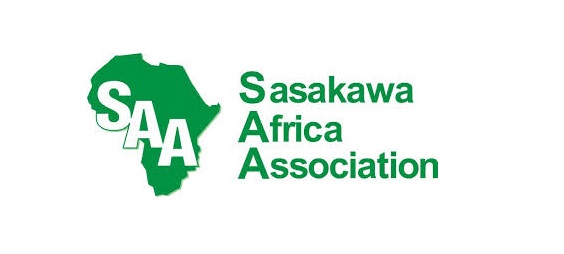What we are doing to address climate change’s threat to food security in Nigeria – Sasakawa
Stakeholders in the agriculture sector in the country have proffered solutions to the challenges of climate change posing threats to Nigeria’s food security.

Stakeholders in the agriculture sector in the country have proffered solutions to the challenges of climate change posing threats to Nigeria’s food security.
The stakeholders, during a two-day 2023 annual national stakeholders review and planning workshop organised by Sasakawa Africa Association and held in Kano, however said they are doing everything possible to avert the looming hunger projection in the country in 2023.
with the theme, “Building resilience food systems in the face of rising food demand and climate change.
According to the Country Director, Sasakawa in Nigeria, Godwin Atse, “Now, we have a very strong strategy that responds to this, we have three pillars of Regenerative Agriculture, Nutrition Sensitive Agriculture and Market Sensitive Agriculture.
- NIGERIA DAILY: Why CBN Must Obey Ex Parte Order Of Supreme Court – Lawyer
- We’ll conduct census in Sambisa Forest – NPC
“In Sasakawa, we are developing programs in agriculture that provide that livelihood for all, including women, youths and even people living with disability.
“We are concerned about regenerative agriculture because we are concerned about less inputs, but attaining increased yields,” he explained.
He also said the program involves aggressive extension work by engaging youths as community-based facilitators who take messages to farmers as well agro-dealers in communities.
“Today, we are pushing a new variety of wheat in Nigeria, and the country is becoming a strong country in wheat production, and that will cut the cost of importation.”
On the projection of possible food insecurity in Nigeria as a result of flooding in some parts of the country, the Country Director also said there is no cause for alarm.
He said they have been able to develop the early warning system to farmers and also promoted flood tolerant, early maturity and drought tolerant seeds, so that farmers can use their most compatible crop to mitigate the effect of climate change on food security.
Earlier speaking, Sasakawa President, Makoto Kitanaka, said in the over 30 years of their existence, they are working with over 300,000 farmers spread across the globe, and that the theme of this year’s event is timely, as discussions around climate change and food security take centre-stage worldwide.
Similarly, the Kano state Commissioner of Agriculture, Dr Yusuf Jibril said Sasakawa is one of the integral collaborators of the state in promoting agriculture.
He said the state is already one of the leading farming states, and is aiming to start leading across Africa.
The two-day annual event brought together different agriculture stakeholders with the sole aim of deliberating ways to provide solutions to food demand in the midst of climate change.
Parts of the recommendations issued in the communique include, “Results from Sasakawa fields showed that by using RA practices, farmers doubled their yields and profitability.
“Recognising the impact of climate change on agriculture, and particularly smallholder farmers who make up 60 per cent of the food value chain, stakeholders agreed that there was a need for joint efforts to tackle the negative impact of climate change.
“There was a need to engage the universities in documenting research impact in the field.
“The issue of extension policy for the country was discussed, and participants called on the Federal Government to sign the extension policy document to strengthen the extension system in Nigeria,” among others.
